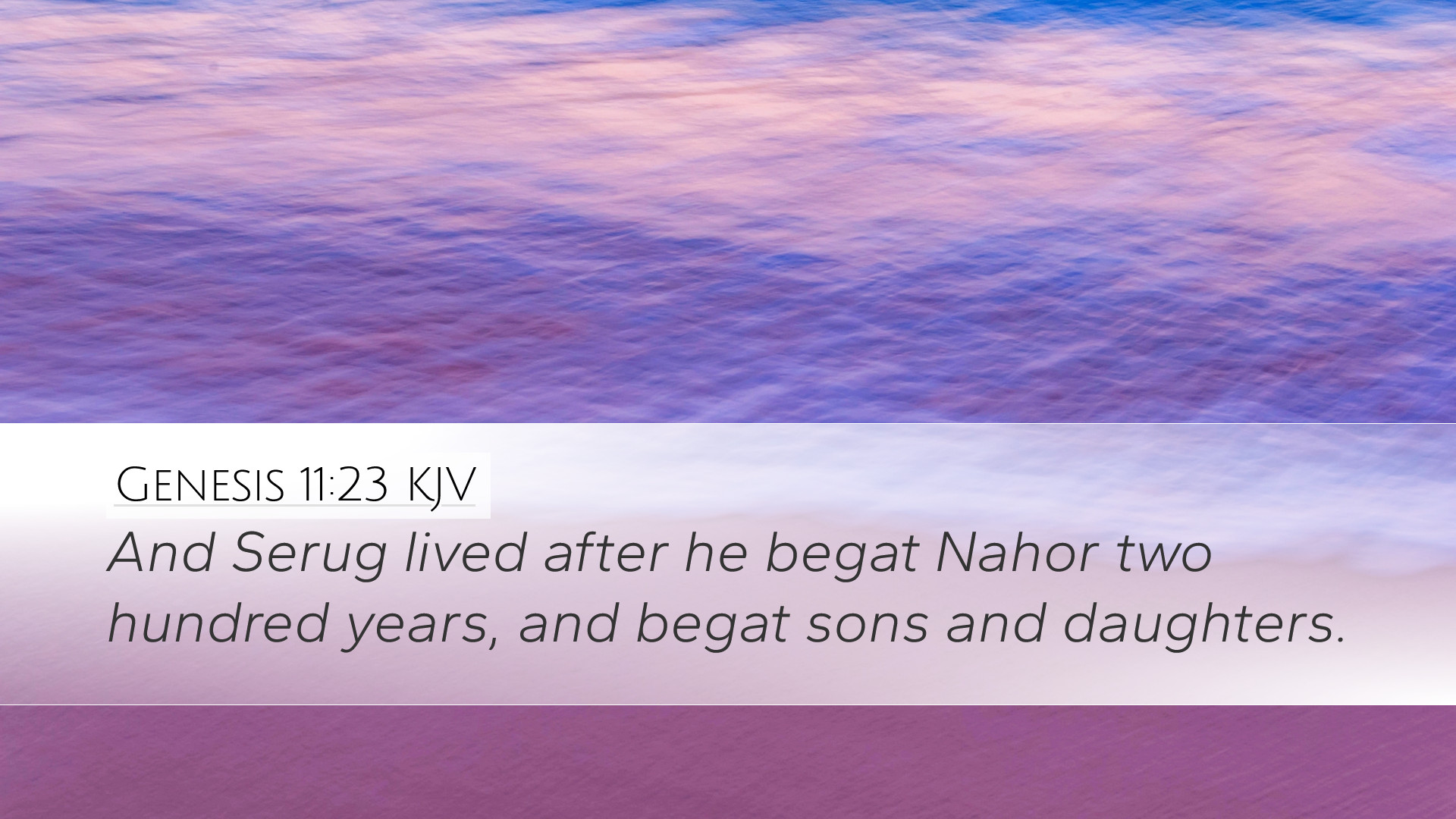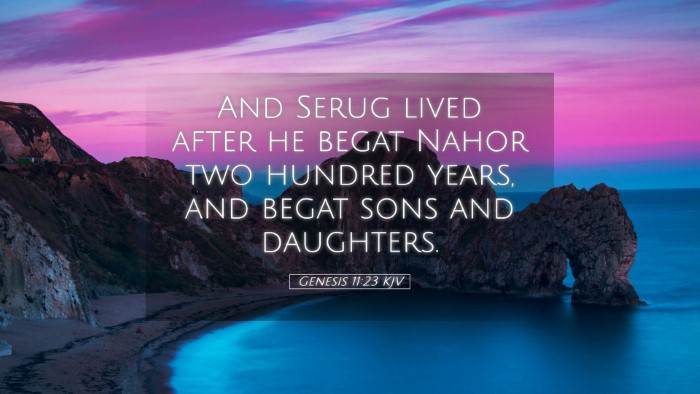Genesis 11:23 Commentary
Verse: "And the days of Terah were two hundred and five years: and Terah died in Haran."
Introduction
This verse marks a significant moment in the lineage of Abraham, juxtaposing the narrative of the patriarch's ancestry against the backdrop of human history. The mention of Terah, Abraham's father, encapsulates themes of mortality and divine providence, prodding deeper theological reflections.
Contextual Analysis
Historical Context: Terah lived during a pivotal time in human history, post the Great Flood and before the call of Abraham. He represents a transition from the generations before the Flood, characterized by longevity, to a new era marked by divine covenants.
Geographical Context: Haran was a significant city in ancient Mesopotamia, a place where Terah settled with his family. Its mention is crucial as it sets the stage for the subsequent journey of Abraham to Canaan, as directed by God.
Exegesis
Terah’s Age: The donnée presents Terah as having lived for 205 years. This number, though reflecting the revolving paradigm of life spans in Genesis, may serve a symbolic purpose, demonstrating the confluence of God's plans and human agency.
From Matthew Henry's Commentary:
Matthew Henry provides insights into the significance of Terah’s age, highlighting how his long life may reflect both God's mercy and the weight of his eventual disobedience. By living to 205 years, Terah witnessed significant changes within his family and the broader context of society as it sought to redefine itself post-Flood.
From Albert Barnes' Commentary:
Albert Barnes notes the implications of Terah’s death in Haran and how it symbolizes a turning point. Terah's death serves as a reminder that earthly lineage is temporary, redirecting focus from earthly ties to divine callings. It foreshadows the unfolding of God's covenant with Abraham, transferring focus from past generations to the future promises God has for His people.
From Adam Clarke's Commentary:
Adam Clarke emphasizes the importance of Haran where Terah died, suggesting that the liminal space of Haran represents both a settling point in Terah's life and the sanctified space that would serve as the launchpad for Abraham’s divine mission. Clarke draws attention to the divine plan at work, stating that while Terah may have been a man of his era, he ultimately fell outside the covenantal promise that would pass to Abraham.
Theological Implications
God's Sovereignty: Terah's life and death denote God's sovereignty in historical timelines, where human decisions and settings play a part in His grand narrative without negating divine providence.
Human Mortality: The text recalls the frailties of human life. Terah’s death showcases the inevitable fate of every person, leading the reader to consider their own mortality in light of eternal promises.
Application for Today
This verse invites reflection for ministers, students, and theologians who find relevance in the integration of personal legacy and divine purpose.
- Pastoral Reflection: Consider how the lives of predecessors influence congregational life and how vital their legacies become when viewed through the lens of God’s overarching narrative.
- Academic Inquiry: Engage in studies exploring genealogies in the Bible, understanding how each name carries weight and serves a purpose within God's plan as is evident in Terah’s life.
- Personal Application: Reflect on one’s own life in terms of what legacy will be left behind. Encourage introspection regarding faithfulness to God's call amidst life's transitions.
Conclusion
The account of Terah’s life and death stands as a reminder of the temporal nature of existence against the backdrop of eternal divine promises. Genesis 11:23 is not merely a marker of mortality but a pivotal point leading to God’s covenantal relationship with humanity, beckoning the reader to trust in His sovereign plan.


